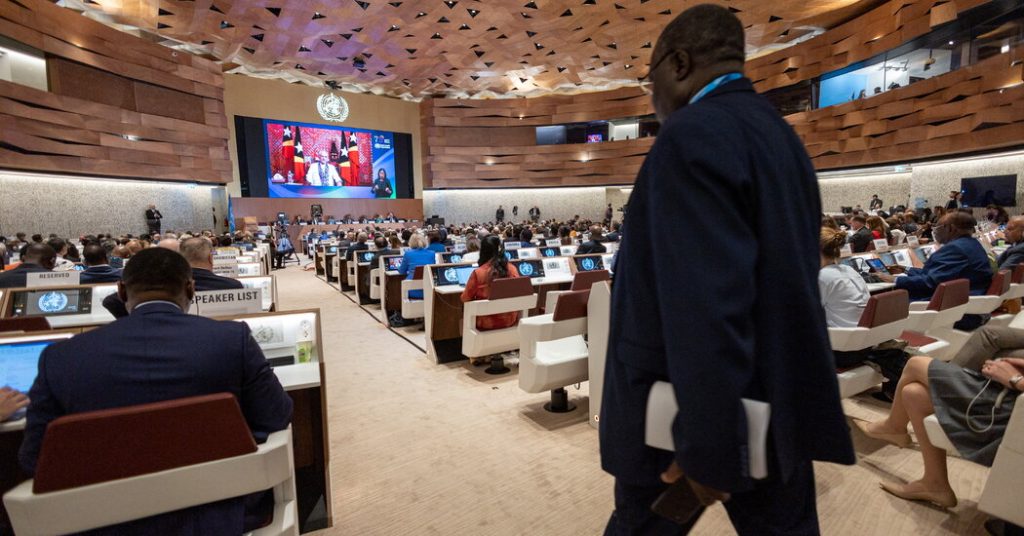Countries around the globe have been unable to agree on the terms of a treaty to combat future pandemics, despite initial momentum spurred by the inequalities in access to vaccines observed during the Covid-19 pandemic. Negotiations at the World Health Assembly were aimed at addressing these disparities and establishing protocols for surveillance, data sharing, and vaccine production. The urgency for such a treaty remains, as public health experts acknowledge the potential for another deadly pandemic to arise.
One of the main stumbling blocks in the negotiations is the Pathogen Access and Benefits Sharing section, which calls for swift sharing of genetic sequences and samples of emerging pathogens. Low-income countries are pushing for compensation in the form of access to vaccines and treatments developed using this information. The treaty would aim to ensure that resources are distributed equitably across nations, recognizing that outbreaks anywhere can pose a threat to the entire world.
Despite the urgency of the situation, negotiators have struggled to reach a consensus on key sections of the treaty, prompting the need for more time to continue discussions. The treaty would establish legally binding policies for member countries, focusing on surveillance, data sharing, and local manufacturing of vaccines. While some countries have expressed concerns about sovereignty and economic impacts, public health experts stress the importance of global cooperation to prevent and control epidemics.
The Covid-19 pandemic highlighted weaknesses in global preparedness and response systems, leading to increased mistrust between wealthier and poorer nations. The inequities in access to vaccines and treatments underscored the need for a unified front against future pandemics. The proposed treaty aims to address these issues and ensure that resources are distributed fairly, with a focus on preventing, detecting, and controlling epidemics.
Some proposals in the draft treaty, such as requiring manufacturers to set aside vaccines for donation or distribution at cost, have proved to be too ambitious given the current timeframe. Negotiators are working to finalize details by 2026, but misinformation and concerns about sovereignty have hindered progress. Some countries, such as the United States and Britain, have expressed reservations about certain aspects of the treaty, while public health experts stress the importance of global cooperation in combating future pandemics.
Overall, the treaty negotiations represent a critical moment in global health and pandemic preparedness, with the potential to shape future responses to emerging pathogens. While challenges remain in reaching a consensus on key issues, public health experts emphasize the importance of cooperation and equity in addressing the global threat of pandemics. The ongoing negotiations underscore the need for a unified approach to prevent and control future outbreaks, recognizing that the health of one nation is intertwined with the health of the entire world.








